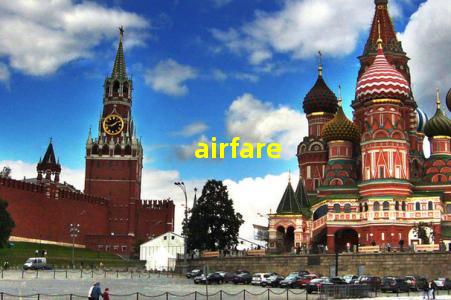旅游费用英文(旅游费用英文单词怎么写)
1、旅游费用英文
Travel Expenses in English
When planning a trip, it is essential to consider the travel expenses. Understanding the English terms related to travel costs can be helpful when booking accommodations, transportation, and activities. Let's explore some key phrases to help you navigate through your travel budget.

1. Airfare
Airfare refers to the cost of the flight tickets. To find the best deals, it is recommended to compare prices on various airlines' websites or use travel search engines.
2. Accommodation
Accommodation includes the cost of staying in a hotel, hostel, or rental property. It is important to consider factors such as location, amenities, and reviews when choosing where to stay.
3. Transportation
Transportation expenses include local transportation within the destination, such as taxis, buses, or trains. Additionally, if you plan on renting a car, don't forget to factor in the cost of gas and parking fees.
4. Food and Drink
Food and drink expenses can vary depending on the destination. It is crucial to budget for meals, snacks, and drinks. Consider trying local cuisines and street food for a more authentic experience.
5. Entertainment and Activities
Exploring the attractions, joining tours, or engaging in local activities all come with a cost. Research and plan ahead to include these expenses in your budget.
6. Travel Insurance
While not mandatory, travel insurance is highly recommended to protect you from unforeseen circumstances. Make sure to understand the coverage and cost before purchasing a policy.
Remember, it is essential to create a budget and stick to it while traveling. Having a clear understanding of the English terms related to travel expenses will help you plan and manage your finances better. Safe travels!

2、旅游费用英文单词怎么写
Travel Expenses - How to Write in English
Traveling is a wonderful way to explore new places, experience different cultures, and create lifelong memories. However, it is essential to plan and budget your trip properly, including accounting for all your travel expenses. Here is a guide on how to write common travel expense terms in English.
- Airfare: The cost of your flight tickets.

- Accommodation: The cost of your lodging, which includes hotels, resorts, hostels, or vacation rentals.

- Transportation: The expenses related to your local transportation during the trip, such as taxis, trains, buses, or car rentals.

- Meals: The cost of food and drinks during your trip.

- Attractions: The fees for visiting tourist sites, museums, parks, or any attraction you want to explore.

- Travel Insurance: The cost of insuring yourself against any unforeseen circumstances during your trip.

- Miscellaneous Expenses: Other unforeseen expenses, including souvenirs, tips, visas, or emergency costs.

When planning your trip, it's important to consider all these expenses and allocate a budget accordingly. Remember to research and compare prices to get the best deals and value for your money. Additionally, it's wise to keep track of your expenses throughout the trip to avoid overspending and maintain financial discipline.
By understanding and being able to write these travel expense terms in English, you will find it easier to communicate with people from different countries and make better travel arrangements. Learning these words will also help you when discussing your travel plans with travel agents, while booking accommodations online, or when planning your itinerary.
Remember, being mindful of your travel expenses will not only help you stay within budget but also ensure a more enjoyable and stress-free trip. So, start planning, explore the world, and embrace new adventures while keeping track of your travel expenses!
3、旅游费用的英文怎么说
What is the English translation of "旅游费用"?
When it comes to talking about travel expenses in English, the equivalent phrase for "旅游费用" is "travel expenses" or "cost of traveling". Travel expenses refer to the money spent on transportation, accommodation, food, and other related costs during a trip.

Planning your travel budget
Before embarking on any journey, it is crucial to plan your travel budget. This involves estimating the amount of money you will need for the entire trip. It is recommended to consider the following expenses:
1. Transportation: This includes the cost of flights, train or bus tickets, rental cars, and any other means of transportation you might require.
2. Accommodation: Research different types of accommodations, such as hotels, hostels, or vacation rentals, and consider their prices per night or week.
3. Food and drinks: Determine how much you are willing to spend on meals, snacks, and beverages during your trip.
4. Activities and attractions: Research the cost of visiting museums, landmarks, or participating in any specific activities at the destinations you plan to visit.
5. Miscellaneous expenses: Remember to account for additional costs such as travel insurance, visa fees, souvenirs, and unexpected expenses.
Tips for managing travel expenses
To make the most of your travel budget, consider the following tips:
1. Research and compare prices: Look for the best deals on transportation, accommodation, and activities. Compare prices from different providers before making a decision.
2. Create a daily budget: Determine how much you can afford to spend each day. Try to stick to this budget by tracking your expenses.
3. Prioritize your activities: Focus on the attractions that interest you the most and allocate a larger portion of your budget accordingly.
4. Pack smart: Bring the necessary items to avoid unnecessary expenses. Pack snacks, reusable water bottles, and basic toiletries to save money during your trip.
5. Use travel apps: Download travel apps that offer discounts, travel deals, and coupons for various services.
By budgeting wisely and managing your expenses efficiently, you can ensure that you make the most of your travel experience while staying within your financial capabilities.
Remember, "旅游费用" is an essential aspect of travel planning, and being well-prepared financially can help make your trip more enjoyable and stress-free.
4、旅游费用用英语怎么说
Travel expenses in English
As a travel enthusiast, one of the most important aspects to consider when planning a trip is the travel expenses. Knowing how to express and understand the term "travel expenses" in English can be helpful for navigating through bookings, budgeting, and communicating with locals. Here are some common phrases to describe travel expenses:
1. Cost of travel
The cost of travel refers to the overall expenses incurred during a trip, including transportation, accommodation, meals, and any other related expenditures. It is a general term that encompasses all aspects of the travel experience.
2. Transportation expenses
This term specifically refers to the expenses associated with getting from one place to another, such as airfare, train tickets, bus fares, or rental car fees. It is important to budget for transportation expenses, especially if traveling to multiple destinations.
3. Accommodation costs
Accommodation costs include the expenses for staying overnight in hotels, hostels, guesthouses, or other types of lodging. This can vary greatly depending on the location, quality of the accommodation, and the duration of the stay.
4. Meal expenses
Meal expenses cover the costs of eating out or buying food while traveling. It includes meals at restaurants, street food, snacks, or groceries. Depending on personal preferences and the destination, meal expenses can range from affordable to luxurious.
5. Miscellaneous expenses
There are often miscellaneous expenses that may arise while traveling, such as entrance fees to tourist attractions, souvenirs, travel insurance, or emergency expenses. It is advisable to allocate some funds for unexpected costs.
Remember, when planning a trip, it is essential to budget wisely and keep track of your expenses as you go. Understanding these common English phrases related to travel expenses will not only help you communicate effectively but also ensure a smoother and more enjoyable travel experience.


.jpg)
.jpg)
.jpg)
.jpg)
.jpg)
.jpg)